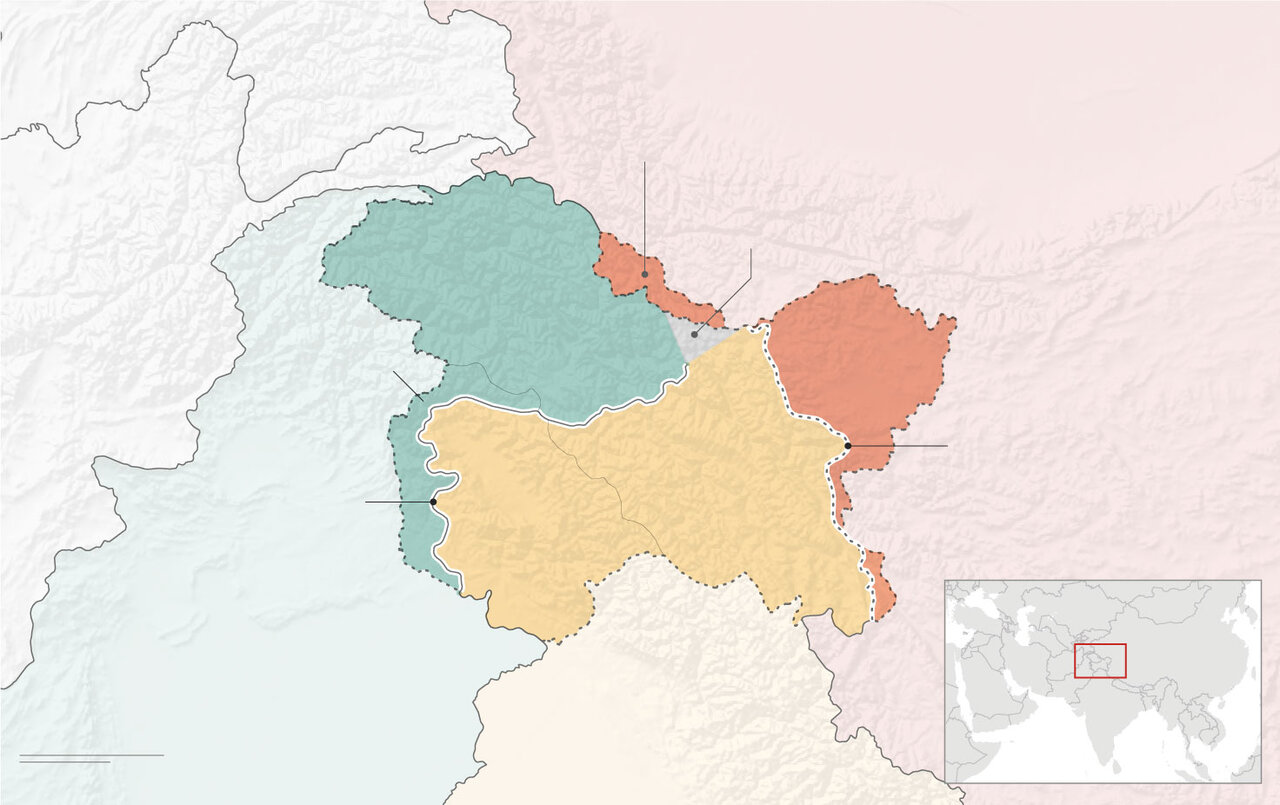Mediation crucial to control nuclear-armed Indo-Pak hostilities

TEHRAN -- After the deadly terrorist attack on April 22 in the disputed Himalayan region of Pahalgam, which killed 26 tourists were killed, Iran has offered to mediate between India and Pakistan to reduce regional tensions.
During a telephone conversation on Saturday evening with Pakistani Prime Minister Shehbaz Sharif, Iranian President Masoud Pezeshkian expressed the need for dialogue.
The Iranian president also called Indian Prime Minister Narendra Modi and condemned the terror attack in India. Modi thanked Pezeshkian for Iran’s condolences, noting, “Your empathy is deeply valued, especially given Iran’s own tragic experiences with terrorism.”
A parallel push was also made by Saudi Arabia when on Friday Saudi Foreign Minister Faisal bin Farhan held separate calls with India’s S. Jaishankar and Pakistan’s Ishaq Dar to discuss the attack and its cross-border implications.
According to Reuters, China, a key player in the region, also said on Monday it hoped India and Pakistan will exercise restraint and welcomed all measures that will help cool down the situation.
Responsibility for the attack was allegedly claimed by the hitherto unknown The Resistant Front (TRF). India has blamed Pakistani elements for the attack while Islamabad has denied any involvement. Pakistan has stated its willingness to cooperate with any investigation conducted by international inspectors.
The attack took place in a region only accessible on foot or by horse.
India says it has identified two of the three suspected militants as Pakistani, although Islamabad has denied any role and called for a neutral probe.
The two countries have also exchanged small arms fire since the terrorist attack took place.
Pahalgam is a major pilgrimage route, known as Amarnath Yatra, which takes place every year and has been exposed to previous attacks.
New Delhi closed key border crossings and expelled military, naval and air advisers from the Pakistani High Commission in New Delhi. India also suspended the Indus Water Treaty in force since 1960. Indus Valley originates in Tibet, flowing through China and the Indian-controlled Kashmir before reaching Pakistan.
Pakistan said any attempts to divert water from Pakistan are considered an act of war. Pakistan suspended all trade with India, closing its airspace and expelling Indian diplomats.
The attack came a day after U.S. Vice President JD Vance arrived in India with his family.
U.S. President Donald Trump has condemned the attack. Leaders from Russia, Ukraine, Israel, France, Italy and the UAE have also issued statements condemning the terrorist attack.
History:
The Kashmir region is divided among India, Pakistan, and China — but claimed in full by both India and Pakistan. The region is home to roughly 20 million people — with an estimated 14.5 million living in the India-administered territory, about 6 million in Pakistan-administered territory, and less than a few thousand in China-administered territory. It sits at a confluence of critical strategic, economic, and religious interests.
The modern history of the Kashmir conflict dates back to 1947, when British India was partitioned into Hindu-majority India and Muslim-majority Pakistan. What today constitutes the Indian union territory of Jammu and Kashmir — part of the wider region of Kashmir —was at the time ruled by the Hindu maharaja Hari Singh, who initially declined to join either country.
That changed after Pakistani guerrilla fighters attempted to seize the region and topple him. The result was the first India-Pakistan war, as the maharaja sought India’s help to ward off the invaders and in return acceded his princely state to New Delhi — reinforcing a de-facto division of Kashmir that still holds.
Today, India controls the most populous portion of the region, which includes the Kashmir Valley, Jammu and Ladakh. Pakistan holds parts of northern Kashmir, including Azad Jammu and Kashmir (AJK) and Gilgit-Baltistan. China, meanwhile, administers the sparsely populated Aksai Chin region in the northeast, which India also lays claim to, and Shaksgam Valley, where India does not acknowledge Chinese control.
In August 2019, the Modi government revoked Article 370 and scrapped Jammu and Kashmir’s special autonomous status – a step hailed by New Delhi as a “major achievement” but decried in Islamabad as illegal.
Few regions in the world are as densely militarized or as persistently volatile. India and Pakistan have been at war three times. However, in the past both sides were not nuclear.
Today, the possibility of a nuclear conflict is very real and international intervention for seizure of hostilities is required.
